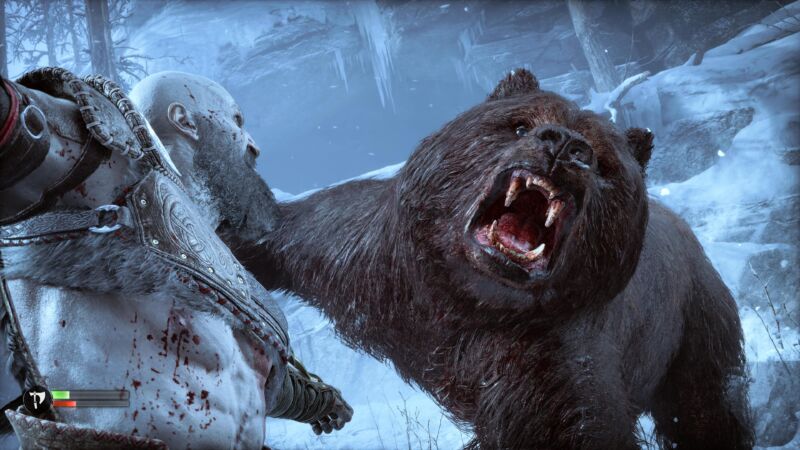
It’s been four years now since Sony reimagined the remorseless god of war Kratos as a meme-worthy single father struggling to connect with his son. A few years have also passed between the events of that game and those of God of War: Ragnarök, a less focused game that still serves as a worthy sequel that slots easily into the same groove as that reboot.
In Ragnarök, the young and eager Atreus of the last God of War has been replaced with a headstrong pre-teen who is constantly pushing against his father’s headstrong attitude. As the title implies, father and son find themselves struggling through the realm-scarring Fimbulwinter, a prelude to the world-ending battle of Ragnarök.
Yet even the prospect of the end of the world isn’t enough to re-ignite Kratos’ lust for war. He’s eager to avoid the battle, seeing that as the best way to fulfill his monomaniacal desire to protect his son at all costs. Atreus, meanwhile, sees his dad as too cautious and struggles to convince Kratos to trust his more active (and risky) plans to avoid an outcome that is literally fated.
Ragnarök’s writing and characterization push very hard in an attempt to achieve the same kind of heartstring-tugging moments of growth and understanding between Kratos and Atreus that the last game achieved effortlessly. Unfortunately, for the most part, these moments don’t land as well as they did in the last game.
Part of the problem is the performances: Kratos and Atreus have some of the weakest and least effective line deliveries in a game that is full of strong voice acting and motion capture. As a result, I never fully bought the pre-teen angst that leads Atreus to explode in a surprising (and momentous) burst of defiance at a key point in the middle of the narrative. Kratos’ near-constant defensive crouch at the thought of his son being in danger, meanwhile, is much less interesting and affecting than his growth into a reluctant but caring father from the last game (and often seems in direct opposition to all the battling he does in between cutscenes).
Meet the team
Another problem is the game’s lack of narrative focus. While Kratos and Atreus are still central to this story, Ragnarök diverts its attention constantly to narrative interludes based on the small, reluctant band of allies that has formed around this core pair. Aside from distracting from the parental-and-child tale that could serve as the game’s emotional core, these digressions end up more than a bit uneven.
The game puts a lot of effort into a heavily telegraphed “redemption” arc for Freya, for instance. The goddess’ transition from murderous rage after Kratos killed her son to a reluctant partnership doesn’t have much in the way of believable justification and ends up feeling unearned. I also found myself utterly unable to get interested in the overwrought backstory of the two dwarven brothers who serve as the resident blacksmiths for the crew.
I was a bit more intrigued by Tyr, another former god of war who suffered a long confinement under Odin and, like Kratos, has renounced violence as a way of life. Unlike Kratos, though, Tyr does his best to stick with his newfound pacifism, offering a compelling and tortured take on whether an immortal force can really change its nature. And while Atreus’ interactions with his father didn’t really connect emotionally, extended sections where he pairs with various young female companions shine bright, full of the kind of flirtatious banter and emotional upheaval that can characterize youth.
https://arstechnica.com/?p=1894799

